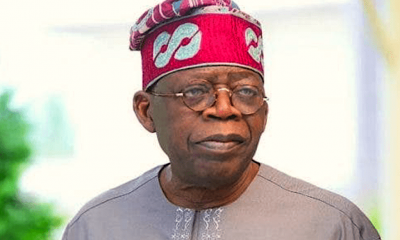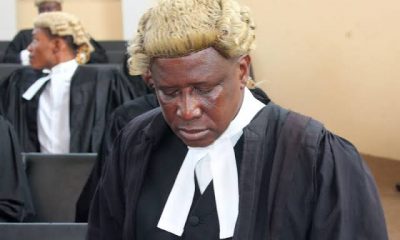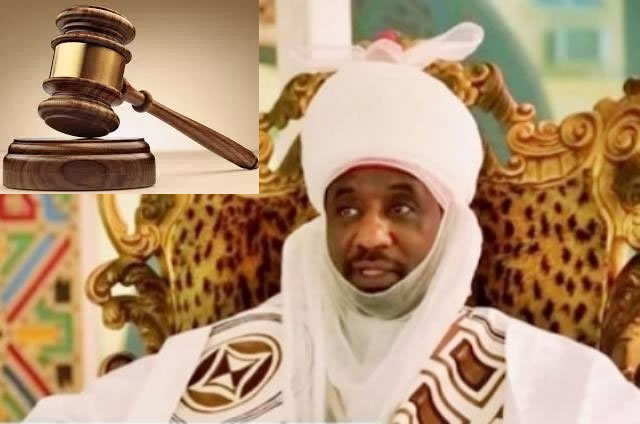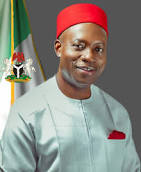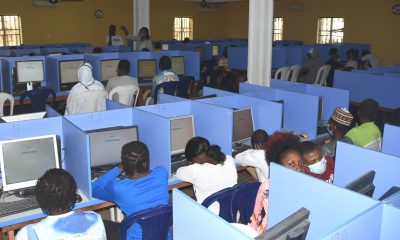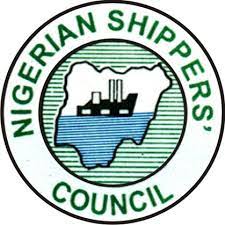COVER
2023: Where are the Masquerades?
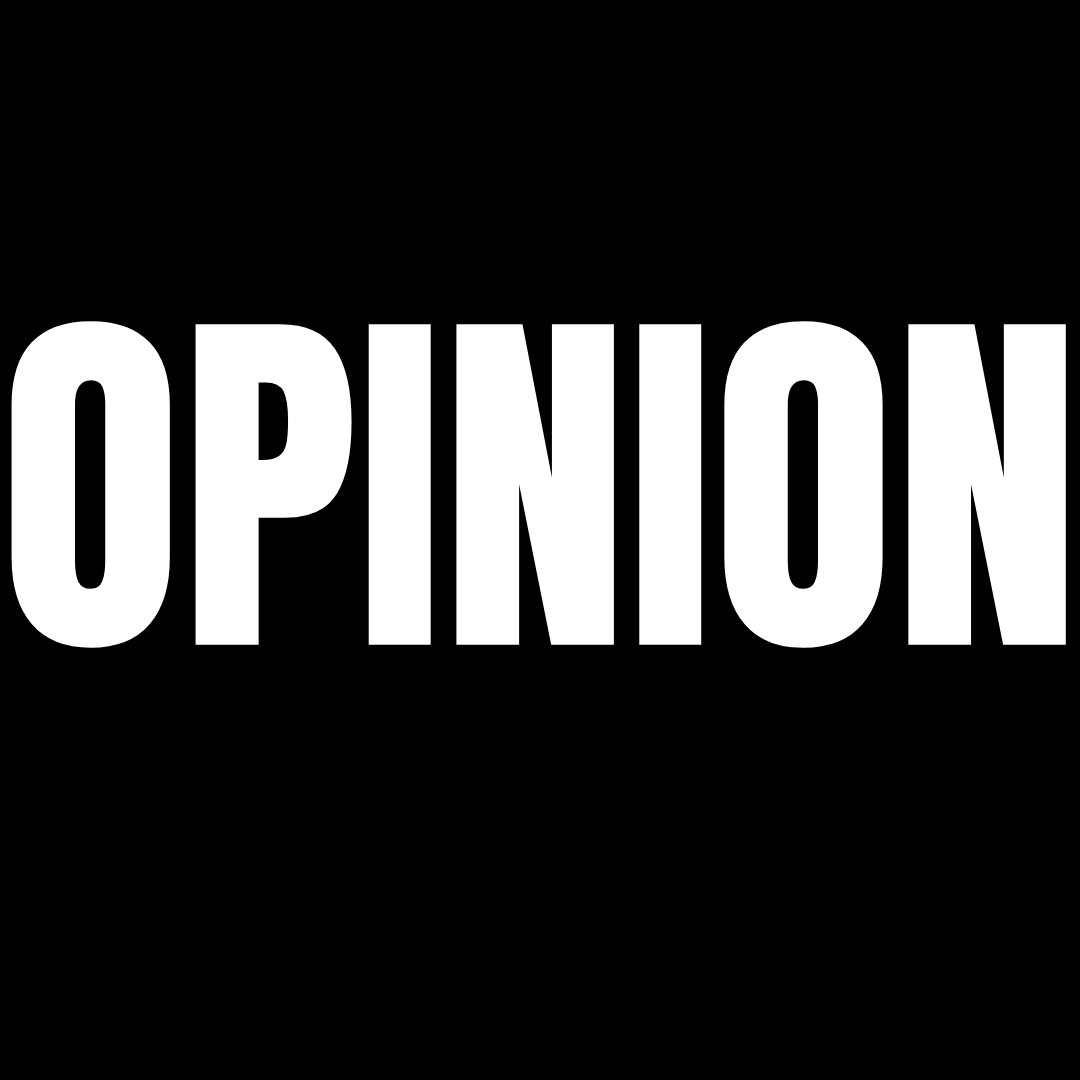
By Dakuku Peterside
There are masquerades in every culture and the life of every individual. The masquerades wear masks for different reasons – from prevarication, illusion, fantasy, fright, horror to protection. No matter the reason, masquerades thrive by covering up who they are and taking up a persona unique to the image they want to portray.
This image becomes the identity of the masquerade. And the persona behind the masquerade dies for the masquerade’s persona to live. In most cultures, it is a taboo to unmask a masquerade. Even at the threat of losing its life, a masquerade will fight to hide the identity of the person behind the mask.In the past, masquerades were a rarity and often appeared on special occasions and festivities.
Nowadays, both literally and metaphorically, we are all masquerades. We wear masks these days as a necessity. Facial masks existed before COVID-19, but the coronavirus, at best, only heightened its usage. The face mask, during this pandemic era, has become a symbol of self-preservation against a deadly viral infection. Asides literal masks, we also wear ‘symbolic masks’ to protect ourselves from emotional and psychological elements that we confront daily – financial secrets, relationship secrets, and the privacy of life and family.Since the drumbeats of the 2023 election started, we have seen big “political masquerades“ coming out to declare their interests in the struggle for power and relevance. Across party lines, powerful politicians, likened to big masquerades, and their cohorts, are showcasing introductory and essential aspects of their election dances and using both old and novel gimmicks to make their interest in the presidency of Nigeria known. Some have visited the incumbent president to formally inform him of their ambitions; some are still consulting with stakeholders; some are waiting for the call of God and their people to declare their intentions publicly; while others have gone ahead to make their presidential ambitions public via the mass media.
So far, there are no surprises yet. Those who have declared or those rumoured to be on the verge of announcing their intentions to rule Nigeria are the same old political warhorses who, to a great extent, are known by Nigerians. We expect more of them to make their declarations in the coming days and weeks. This is part of the political process, and any Nigerian is free to aspire to become president and compete for the post through any political platform of his or her choice. In Nigeria, at least for now, only masquerades wearing the masks of the All Progressives Congress (APC) or the Peoples Democratic Party (PDP) are considered to have realistic chances of winning the presidential election. But these are early days, and a third force political platform may challenge this status quo.
It is about 12 months to the general elections for Nigerians to choose the leader of the most populous black nation on earth, at a time of significant political, social, and economic turbulence. Nigeria faces, on all sides, existential threats that will require a highly skilled, competent and charismatic leader to galvanise all the human and natural resources at our disposal to tackle the vast socio-economic challenges confronting us. Among these “masquerades“ declaring their interest, one will emerge as the leader. This underscores the importance of galvanising Nigerians with outstanding leadership and empathic qualities to step up to the arena to be counted. One must be in the race to win.
Nigerians often complain about the same old leaders taking political offices and doing nothing innovative to develop the country, but forget that it all starts with the calibre and quality of politicians coming out for the presidency. It is from that group that the president will emerge. Therefore, I implore all Nigerians to use this opportunity to encourage proven leaders with the proper knowledge and skills to come on board to compete for the presidency. Nigeria, now more than ever before, needs quality leadership at the highest level.
It is a positive for democracy that so many citizens are stepping forward to lead the nation, indicating increasing political participation. However, nothing yet distinguishes one aspirant from another in terms of either ideology or public policy postulation. For now, we are stuck at the level of personality cults, geopolitical interests, and the ethnic entitlement syndrome. Even where aspirants are from different party platforms, their utterances do not yet reflect the broad agenda of those parties. More disturbingly, there is nothing that indicates depth on national issues from any aspirant.
So far, not less than six “political masquerades“ have declared their interest from the two main political parties – APC (Asiwaju Bola Ahmed Tinubu, David Umahi, and Orji Uzor Kalu) and PDP (Abubakar Bukola Saraki, Anyim Pius Anyim, and Dele Momodu). There are other candidates with near unassailable profiles in the fringe parties. It is time Nigerians started examining all of them through the prism of our complexities. Let us look at ‘the stuff they are made of’, those who gave them the masquerade and are in their company. We want to know what they are offering and what vision they are selling to Nigerians? How will they solve the multiplicity of Nigerian problems? We should not focus on inanities like what their religion is, what geopolitical zone they represent and what financial muscle they have.
Let the presidential “masquerades” come forth and canvas ideas and proffer solutions. Twelve months is enough time to know which of these political masquerades we want to take seriously or ignore. For the political masquerades that have declared their intentions, let us now hear their ideas. However, I acknowledge by trend analysis, that it is not the candidate with the most brilliant take on issues who will win, as the factors that determine who wins elections in Nigeria do not have much to do with sound policy ideas.
Unlike the previous election period, Nigeria is in a precarious situation; inexperience, vacuity, incompetence, the lack of proven service record, and absence of ideas to drive positive change among candidates will not be overlooked nor tolerated by Nigerians. Between June and August this year, the parties will present masquerades dressed in party attires. Our options will be limited to the masquerades presented to the electorate by the parties. To a certain degree, the party will shield the person behind the masquerade from Nigerians. We may be denied the opportunity of knowing what the one behind the masquerade said, as distinct from what the masquerade said.
The party-political machineries will take over immediately after the primaries, and all forms of spin doctors and election pundits will be engaged to convince the electorate of the rightfulness of the candidates. These powerful party campaign machineries will set out to use unfounded marketing tools, lies, half-truths, innuendoes, and propaganda to convince or confuse the electorate to vote for their candidate, even though they may have apparent shortcomings that make them unfit for the presidency. That is why when a president is elected, there are lots of things the electorate assumes s/he said or stood for or championed that turns out completely different from what the president does. Maybe it is still too early in the day, but I strongly feel that now is the time to engage with the masquerades and try to figure out the men behind the masks.
Our current crisis correlates with the electoral decisions and leadership choices we collectively made in the past. All elections have serious consequences. These underscore the importance of the careful consideration of the masquerades to eliminate the wrong candidates from the presidential race and have people with clarity of vision, proven leadership skills and good knowledge of the Nigerian context vis-a-vis the complexity of our religious, social, and ethnic makeup.
The only actual path forward is in using the 2023 election to usher in good leadership with demonstrable capacity to implement a pan-Nigeria agenda. Nigeria is in dire need of positive change. But who will drive this change? More of the same masquerades — Nigeria’s political elite. Unpleasant and scary as today’s Nigeria has become, our present reality should force us to question our prior assumptions about leadership selection. We should not allow primordial sentiments to becloud our judgement in seeking out and choosing a competent and visionary leader as president.
We have a choice now facing all Nigerians: We can make use of the next 12 months to put our acts together and engage in positive politicking to seek out good leaders for the 2023 general elections, or we can decide to play politics as usual without seriously considering post-election governance. Elections are a means to an end and not an end in themselves. If we do not elect good leaders, we will bear the brunt of the consequences – debilitating poverty, insecurity, unemployment, and constant internal crises and calls for secession. We are at the beginning of electing the president of Nigeria. We must get it right at this stage to have a realistic chance of electing a president who will make a difference. There is no doubt that the flawed election process in Nigeria is probably the cause of failed governance and leadership in Nigeria. I argue that we must reassess that process and start on time to get it right, if we must make meaningful progress in getting the right president.
The president derives his power from the people who elect him to lead them in a democracy. So, the president rises and falls with the people. A government by the people, as represented by a voted president, contextually assumes responsibility for the success or failure of the people. Democracy affords the people an opportunity to hold the president accountable through periodic elections. 2023 is another opportunity for the people to get it right.
Nigerians must carefully choose a leader with incredible qualities to take our country to a new frontier. What are these qualities we require of the next president? The aspirant must have a clear vision of where he wants to take Nigeria to in terms of development and how he will achieve this given our current resource realities. The aspirant must have proven skills and competencies in management and leadership. He must have empathy for the plight of many Nigerians and must have a burning desire to work to ameliorate their sufferings. On the basis of association or ideology, the aspirant must be above board – not an ethnic or religious chauvinist, supporter of secessionist activities, or terrorism.
Furthermore, the aspirant must love Nigeria and have a proven record of links built across the country. He must understand the economy, especially productivity. He must have the strength, ability, knowledge, and intellectual capacity to carry the burden of Nigeria, manage our diversity and deliver the dividends of good governance to all Nigeria, not just a section of Nigeria or the elites. Ultimately, the aspirant must demonstrate a clear understanding of how to tackle insecurity, poverty, unemployment, and a shambolic education system.
After all is said, 2022 offers all Nigerians the opportunity to chose the kind of country we want by the quality of the president we vote for in the 2023 general elections. As political masquerades have started declaring their intentions to contest for the presidency of Nigeria, now is the time to engage them to find out the person behind the masquerade.
Dakuku Peterside is a policy and leadership expert.
COVER
Veritas Kapital Records N13.6bn Premium in 2025
Veritas Kapital Assurance Plc has reported an eight percent rise in Gross Written Premium to N13.6 billion in the first half of the year.Managing Director of Veritas Kapital Assurance, Dr. Adaobi Nwakuche disclosed this in a statement on Wednesday in Lagos.Nwakuche said the performance reflected strong market presence and effective distribution channels.
She noted that Net Insurance and Investment Income surged by 244 per cent to N5. 2 billion, from N1.52 billion recorded in the full year 2024.According to her, Profit After Tax reached N3.2 billion, already surpassing the company’s total earnings for the full year 2024.“These results affirm the strength of our values-driven model, built on our people’s dedication, a clear strategy, and unwavering focus on customer value,” she said.Nwakuche said Total Assets rose by 11 per cent to N37 billion from N33.1 billion in 2024, showing improved financial health and operational efficiency.She added that shareholders’ funds increased to N15.1 billion from N11.92 billion in 2024, underscoring investor confidence and sound governance.“This performance is the result of disciplined underwriting, investment optimisation, expanded digital capabilities, and strong customer-focused service delivery.“The H1 2025 results go beyond growth. They show Veritas Kapital’s evolving role as a partner in progress, delivering solutions relevant to individuals, businesses, and communities. “Each figure tells a story of protection delivered, promises honoured, and futures secured. We are building trust, not merely growing profits,” Nwakuche said.She added that as Nigeria adapts to new economic realities, Veritas Kapital is charting a course defined by agility, innovation, and intentionality.The company, she said, is investing in digital access, claims responsiveness, and talent development, while reinforcing its core values of integrity, transparency, and service.COVER
FG Disburses N5.12bn Pension Arrears to 90,689 DBS Pensioners
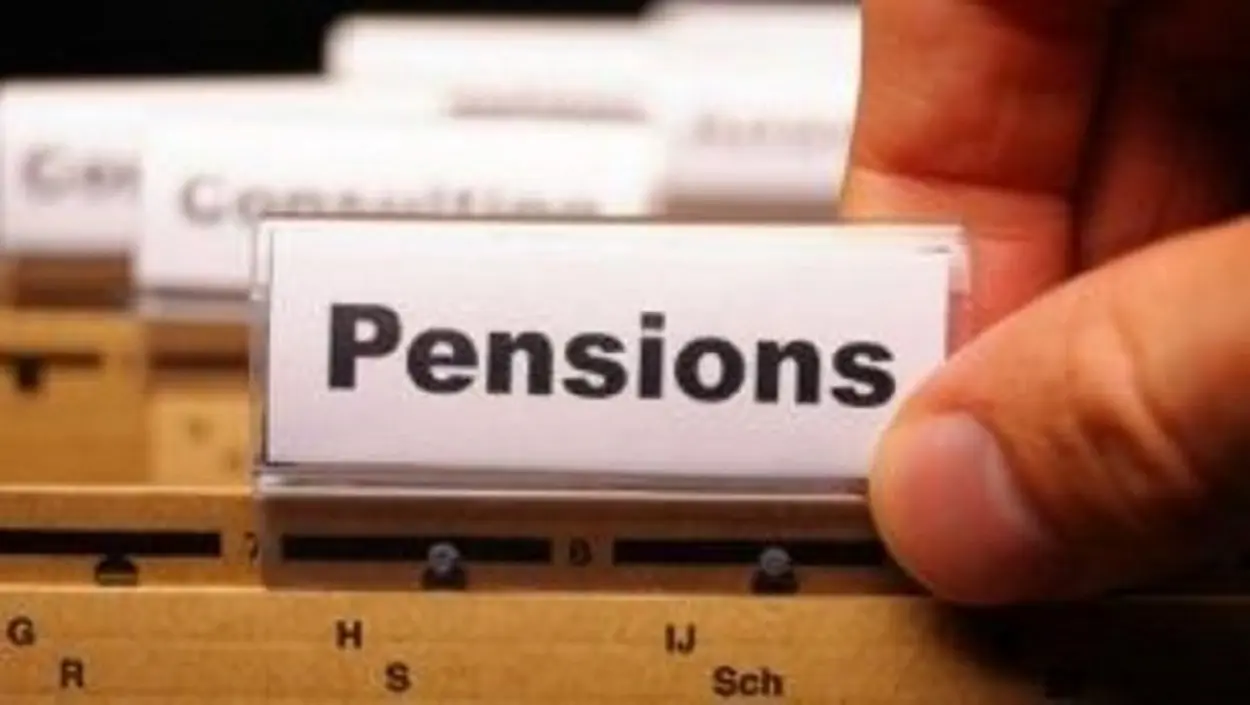
By Tony Obiechina, Abuja
The Federal Government has released funds for the disbursement of N5.12 billion in pension arrears to 90,689 Defined Benefit Scheme (DBS) pensioners under the Pension Transitional Arrangement Directorate.This was contained in a statement by the Head of Corporate Communications of PTAD, Olugbenga Ajayi.
He said that the directorate had finalised the disbursement of the money. The Nigeria Customs Service, the Nigeria Immigration Service, and Prisons Pension Department (CIPPD) pensioners are 8,626, received N276,032, for one-month arrears; the Police, Pension Department (PPD) pensioners are 9,681, received N619,584, for two months as arrears. The Civil Service Pension Department (CSPD) pensioners are 12,773, received N408,736, for one-month arrears, and the Parastatals Pension Department (PAPD) pensioners are 59,609, received N3,814,He said that the payment reaffirms the administration’s commitment to ensuring that pensioners receive their due entitlements in line with the Renewed Hope Agenda of President Bola TinubuAccording to the statement, the approvals align with the President’s Renewed Hope Agenda.“This move shows President Tinubu’s strong commitment to senior citizens’ welfare and marks a new era in DBS pension management,” said PTAD, Executive Secretary, Tolulope Odunaiya.Among the key measures is the immediate implementation of an extra budgetary allocation to enforce new pension rates for DBS pensioners.The President also endorsed the adoption of a proposed pension harmonisation policy, which will be incorporated into the 2026 pension budget. Additionally, health insurance coverage for all DBS pensioners has been approved, ensuring access to essential healthcare services.The proposed reforms include a new pension rate of N32,000 and incremental increases of 10.66% and 12.95% for pensioners from defunct and privatised agencies. Other components of the reform package include harmonisation of pension rates across all DBS pensioners and their enrolment into the National Health Insurance Scheme (NHIS).In June, PTAD announced the successful disbursement of N8.6 billion in pension arrears to 148,625 eligible DBS pensioners across various sectors. The payments reflect the implementation of the N32,000 pension increment approved by President Tinubu in 2024.PTAD had previously settled arrears related to the first pension increment of 20% to 28%, which came into effect in January 2024.COVER
NAF Offensive Decimates 592 Terrorists, Destroys 372 Assets in Eight Months

By David Torough, Abuja
The Nigerian Air Force (NAF) has killed no fewer than 592 terrorists and destroyed 372 enemy assets in Borno within the last eight months, surpassing the total operational gains recorded in 2024.A statement by NAF’s spokesman, Air Commodore Ehimen Ejodame yesterday said the Chief of the Air Staff (CAS), Air Marshal Hasan Abubakar, said this during a courtesy visit to Gov.
Babagana Zulum of Borno. Abubakar said the offensive had destroyed 206 technical vehicles and 166 logistics hubs in deep hostile territory, with coordinated day-and-night strikes from Gonori to Rann, Dikwa to Damboa, Azir to Mallam Fatori.He said the offensive had been boosted by the deployment of A-29 Super Tucano aircraft capable of precision and night missions, Mi-171 helicopters for medical evacuation and logistics, and enhanced intelligence, surveillance and reconnaissance platforms for round-the-clock target tracking.He added that a new Mi-35 gunship was expected to further intensify close-air support for ground troops in the theatre.“Backed by an upgraded fleet and precision night-strike capabilities, NAF aircraft executed 798 combat sorties, clocking over 1,500 operational flight hours in the Air Component of Operation Hadin Kai.“This year, our air war is faster, sharper, and more surgical.“We are taking out high-value targets, crippling their logistics, and hunting down every cell that threatens the peace of the North-East,” he said.The CAS also praised the “Borno Model” of combining community-driven non-kinetic measures with decisive military action, saying it had proven effective in the counter-insurgency campaign.He also inspected facilities at the NAF Base, met with aircrew and ground personnel, and received operational briefings.He reaffirmed the NAF’s commitment to precision air power, intelligence-led operations, and inter-agency collaboration to protect Nigerians.In his response, Gov. Zulum praised the NAF for its sustained air support in degrading terrorist capabilities and protecting communities.According to him, the NAF has been a steadfast partner in their fight against insurgency.“Your operations have saved countless lives and allowed our communities to begin rebuilding.“The people of Borno recognise your sacrifices and stand firmly behind you,” he said.
